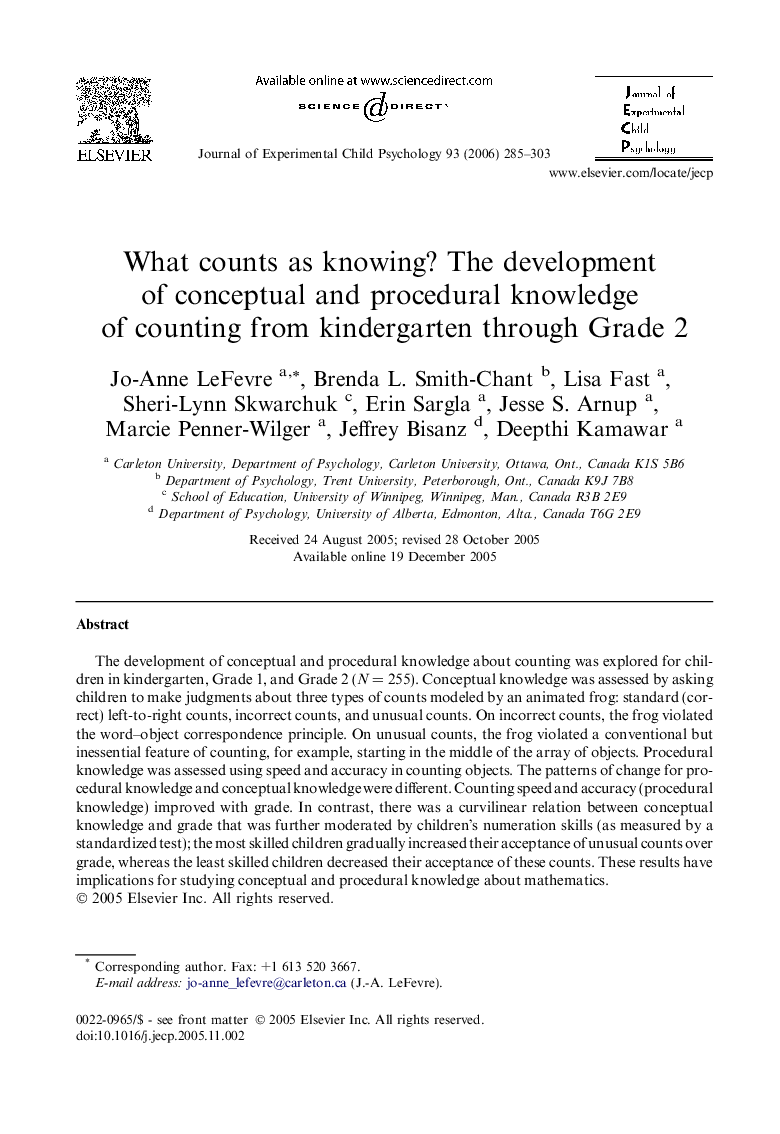| کد مقاله | کد نشریه | سال انتشار | مقاله انگلیسی | نسخه تمام متن |
|---|---|---|---|---|
| 918868 | 919545 | 2006 | 19 صفحه PDF | دانلود رایگان |

The development of conceptual and procedural knowledge about counting was explored for children in kindergarten, Grade 1, and Grade 2 (N = 255). Conceptual knowledge was assessed by asking children to make judgments about three types of counts modeled by an animated frog: standard (correct) left-to-right counts, incorrect counts, and unusual counts. On incorrect counts, the frog violated the word–object correspondence principle. On unusual counts, the frog violated a conventional but inessential feature of counting, for example, starting in the middle of the array of objects. Procedural knowledge was assessed using speed and accuracy in counting objects. The patterns of change for procedural knowledge and conceptual knowledge were different. Counting speed and accuracy (procedural knowledge) improved with grade. In contrast, there was a curvilinear relation between conceptual knowledge and grade that was further moderated by children’s numeration skills (as measured by a standardized test); the most skilled children gradually increased their acceptance of unusual counts over grade, whereas the least skilled children decreased their acceptance of these counts. These results have implications for studying conceptual and procedural knowledge about mathematics.
Journal: Journal of Experimental Child Psychology - Volume 93, Issue 4, April 2006, Pages 285–303